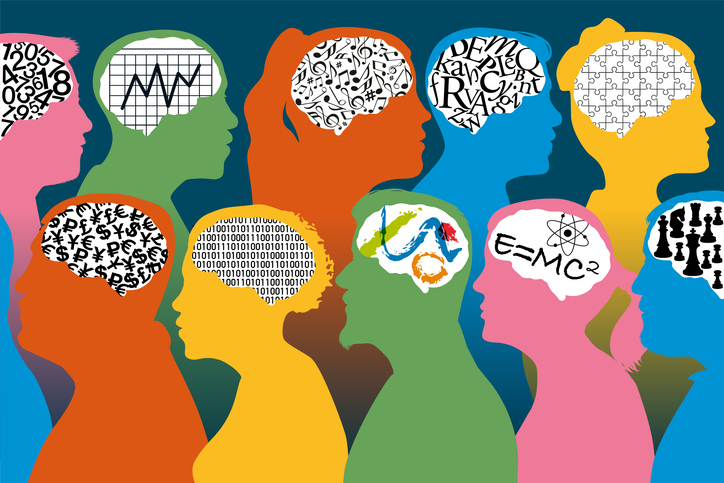
Visionary research which aims to unlock secrets of the human brain, ancient cultures and sustainable energy has seen Flinders University researchers awarded almost $4.5 million in four successful Future Fellowships by the Australian Research Council.
The international collaborations, led by Associate Professor Cedric Bardy (neurosciences), Professor Amy Roberts (archaeological science), Professor Jonathan Benjamin (maritime archaeology) and visiting organic chemist Professor René Koenigs (from the RWTH Aachen University in Germany), recognise “dedication, hard work, high-quality research and leadership ability”.
The successful Flinders projects have secured in excess of $1 million each under the 2023 ARC Future Fellowships scheme.
The Future Fellowships scheme facilitates research excellence by supporting outstanding mid-career researchers to undertake high quality research in areas of national and international benefit.
Deputy Vice-Chancellor (Research) Professor Robert Saint says the latest Future Fellowships further strengthen Flinders University’s impressive research performance, which has grown 140% in the past five years.
“These are important areas of research which are poised to transform people’s health, our cultural knowledge, and sustainable organic energy generation, delivering benefits to the community, industry and the economy in the long term,” says Professor Saint.
The Flinders University recipients are:
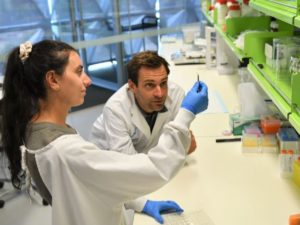
Cedric Bardy (College of Medicine and Public Health and the SA Health and Medical Research Institute) $1,145,629 ‘Benchmarking the neurophysiology of human cortex models in vitro‘
This project aims to improve human brain models in vitro by developing an analytical tool benchmarking biophysical similarities to the adult human cortex.
The research aims to test for the first time the theory that integrating sensory-like inputs and awake/sleep-like cycles of electrical activity in vitro may complete the maturation of human brain organoid models.
“Understanding how the human brain functions is a significant global research challenge with immense potential to benefit the lives of millions of Australians,” says Professor Bardy.
This project will fine tune the cultivation of stem cells outside the body to generate specific brain cells and tissues. New technologies will be developed to measure how well the bioengineered tissues match those in the adult human brain. Short-term benefits include commercialisation opportunities for the Australian biotech industry.
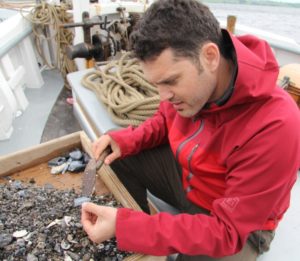
Jonathan Benjamin (College of Humanities, Arts and Social Sciences) $1,118,902 ‘Submerged cultural landscapes and the underwater heritage of Sea Country‘
This project will expand studies of the vast but poorly characterised submerged parts of Australia’s continental shelf, building on earlier fieldwork in Western Australia and the Northern Territory.
Two million square kilometres of Australia’s past cultural landscapes were drowned by rising sea levels after the last ice age.
The first Australians lived in this landscape before the continental shelf was drowned to separate Australia from New Guinea.
This fragile Indigenous archaeological heritage is under-studied and under increasing risk thanks to impacts such as offshore development and climate change,
“Studying deep time and cultural landscapes through underwater archaeology is an important growth area in Australian Maritime Archaeology,” says Professor Benjamin. “This work follows our successful, collaborative work on the Deep History of Sea Country project which has already made a lasting impact. I look forward to building on and expanding our work in this emerging field.”
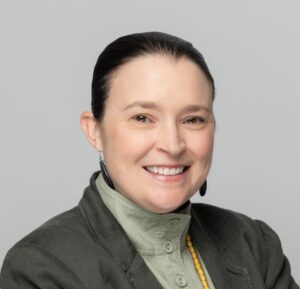
Amy Roberts (College of Humanities, Arts and Social Sciences) $1,102,372 ‘From Baskets to Boomerangs: Knowledges, Lifeways and Colonial Legacies‘
This project, initiated by River Murray Traditional Owners, will employ innovative archaeological science techniques, explore colonial legacies and use creative engagement methods to provide new insights into the diversity of Aboriginal experiences and connect Traditional Owners with their material cultural heritage housed in museums.
Sheryl Giles, Vice Chair of the River Murray and Mallee Aboriginal Corporation, says: “From baskets made by our great grandmothers to boomerangs made by our great grandfathers, through this research we look forward to celebrating the skills and achievements of our ancestors and community.
“This project will also allow us to honour the past as well as create new works by looking at and discussing these baskets and boomerangs amongst our community,” she says.

Enduring weaving and carving practices will be communicated via workshops, field work and ‘artist in residence’ programs, accompanied by broad distribution of all findings through public presentations and publications.
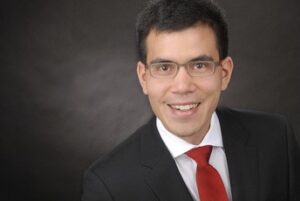
René Koenigs (who will join the Institute for Nanoscale Science and Technology at the College of Science and Engineering from RWTH Aachen University in Germany) $1,083,292 ‘Solar-Driven C-H Functionalisation Reactions‘
This project will investigate new methods for making organic small molecules for applications as diverse as pharmaceutical products and light-emitting organic materials (OLEDs) used in TV sets around the world.
This synthesis of such small molecules currently requires energy-demanding thermal processes based on fossil fuels and the use of lengthy sequential synthesis steps, which adds to costs and waste.
The research aims to use sunlight as a renewable energy source to synthesise small organic molecules in a more economic and environmentally benign way. Implementation by Australian companies will reduce both costs and wastes normally associated with the production of these materials. This work will therefore benefit both the Australian economy and the environment.

